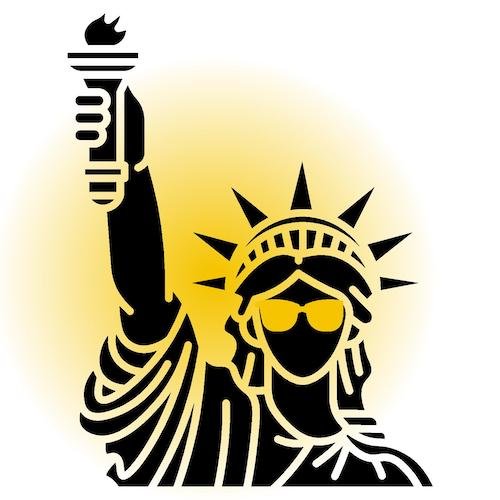Libertarianism, as a philosophical stance, prizes individual liberty, minimal government intervention, and an unfettered free market. This philosophy has deep roots in the enlightenment era, drawing heavily from thinkers who emphasize the intrinsic value of personal freedom and autonomy. However, like any philosophical doctrine, libertarianism faces its share of critiques. Understanding these critiques, along with their counterarguments, provides not only a deeper insight into libertarianism but also enriches the broader discourse on freedom, governance, and ethics.
Libertarianism’s Philosophical Foundations
Libertarianism rests on a foundation of respect for individual autonomy and the belief that personal freedom is paramount. Central to this philosophy is the non-aggression principle, which asserts that aggression against another’s property or person is inherently unjust. Libertarians argue that from this principle flows the justification for minimal government, primarily tasked with protecting individual rights rather than infringing upon them.
This philosophy intersects with several broad themes in ethics, political theory, and economics. At its heart, libertarianism is a response to questions about the nature of freedom, the limits of state power, and the rights of individuals within a society. It champions the idea that individuals are best suited to make decisions affecting their lives and that the role of the state should be limited to ensuring that no one infringes on the rights of others.
Philosophical Critiques of Libertarianism
Libertarianism’s staunch advocacy for individual freedom and minimal government intervention invites a range of philosophical critiques, each questioning the implications and practicalities of its core principles.
Moral and Ethical Concerns
One of the most significant critiques of libertarianism comes from its perceived neglect of moral obligations toward others. Critics argue that an unfettered emphasis on individualism might lead to a society where the welfare of the less fortunate is overlooked. The concern here is not just about economic inequality but about the ethical implications of a system that prioritizes individual rights above all else. This critique challenges libertarians to reconcile their commitment to freedom with the moral imperative to aid those in need.
The Social Contract and Public Goods
Another philosophical challenge to libertarianism is its stance on the social contract and the provision of public goods. Libertarians are often skeptical of the traditional social contract theory, which justifies state authority as a mutual agreement among individuals to ensure collective safety and well-being. This skepticism extends to the state’s role in providing public goods—services like national defense, public education, and infrastructure that are non-excludable and non-rivalrous. Critics contend that a strict libertarian approach might fail to ensure these goods are adequately provided, as they rely on collective funding and administration.
Freedom and Coercion
The libertarian definition of freedom—specifically, the freedom from coercion—is another point of contention. Critics argue that by focusing almost exclusively on coercion by the state, libertarianism overlooks other forms of coercion that can arise in society, such as those exerted by powerful corporations or social norms. Moreover, the emphasis on market freedom can lead to exploitative practices, as not all market transactions are made on an equal footing. This critique invites a deeper examination of what constitutes true freedom and how it can be guaranteed for all individuals.
Justice and Equality
The critique concerning justice and equality questions how libertarianism addresses the socio-economic disparities inherent in a free-market system. The argument here is not against the market per se but against the libertarian assertion that the market alone can ensure fair outcomes for all. Critics highlight that without some form of redistribution or intervention, socio-economic disparities can widen, undermining the fairness and justice of the system. This critique challenges the libertarian ideal of a meritocratic society by questioning whether everyone truly starts from a level playing field.

Philosophical Counterarguments and Defenses
Libertarians offer robust counterarguments to the critiques, emphasizing the coherence of their philosophy in aligning freedom with broader ethical and societal goals.
Reconciling Ethics and Freedom
In the face of moral and ethical concerns, libertarians advocate that a society rooted in voluntary interactions and mutual consent fosters ethical outcomes. They argue that charity and community support, empowered by individual choice rather than state compulsion, can address social welfare more effectively and morally. This defense posits that freedom and ethics are not mutually exclusive but are complementary within a framework that respects individual autonomy.
The Social Contract Revisited
Against critiques regarding the social contract and public goods, libertarian thought presents alternatives to government provision. Highlighting privatization and voluntary associations, libertarians suggest that services such as national defense, education, and infrastructure can be efficiently managed through competitive private entities or collective action without resorting to state coercion. This approach underscores the belief in the capacity of free individuals to organize and solve communal problems.
Addressing Coercion and Exploitation
Libertarians respond to concerns over freedom and coercion by emphasizing the importance of property rights and the principle of voluntary exchange. They maintain that true freedom encompasses the liberty to engage in or abstain from market transactions. By advocating for the strict enforcement of property rights, libertarians argue that societal structures can be established to prevent coercion and exploitation by both state and non-state actors, ensuring that all exchanges are consensual and fair.
Justice, Equality, and Opportunity
Facing critiques on justice and equality, the libertarian defense centers on the principle of equal opportunity rather than equal outcomes. Libertarians argue that disparities arising from free and voluntary exchanges are inherent to a just system. They contend that the state’s role is to provide a level playing field for all, ensuring that individuals have equal chances to succeed, rather than redistributing wealth to achieve equal outcomes. This perspective highlights a meritocratic view of society, where success is determined by individual effort and talent, and not by state intervention.
Conclusion
By addressing these philosophical critiques with thoughtful counterarguments, the libertarian discourse enriches the broader conversation about the ideals of freedom, governance, and societal organization. Engaging with these arguments deepens the understanding of libertarianism’s complexities and its vision for a society where individual liberty and minimal government intervention are paramount. This dialogue is essential for anyone seeking to navigate the philosophical landscape of political and economic freedom.




